Proposed Facebook data center won't guzzle water, but needs lots of power, officials say
Large data centers generally are water guzzlers.
But Facebook operator Meta Platforms' proposed, El Paso hyperscale data center will be different, El Paso Water Chief Executive Officer John Balliew promises.
Even though Meta has a water agreement with the city-operated water utility that would allow it to use huge amounts of water daily if needed, the proposed center is not going to be a high water-consuming business, Balliew recently told the El Paso Times.
"They will never appear on one of those lists — top 20, top 50, top 10 water-using customers — they're just not going to be there," Balliew said.
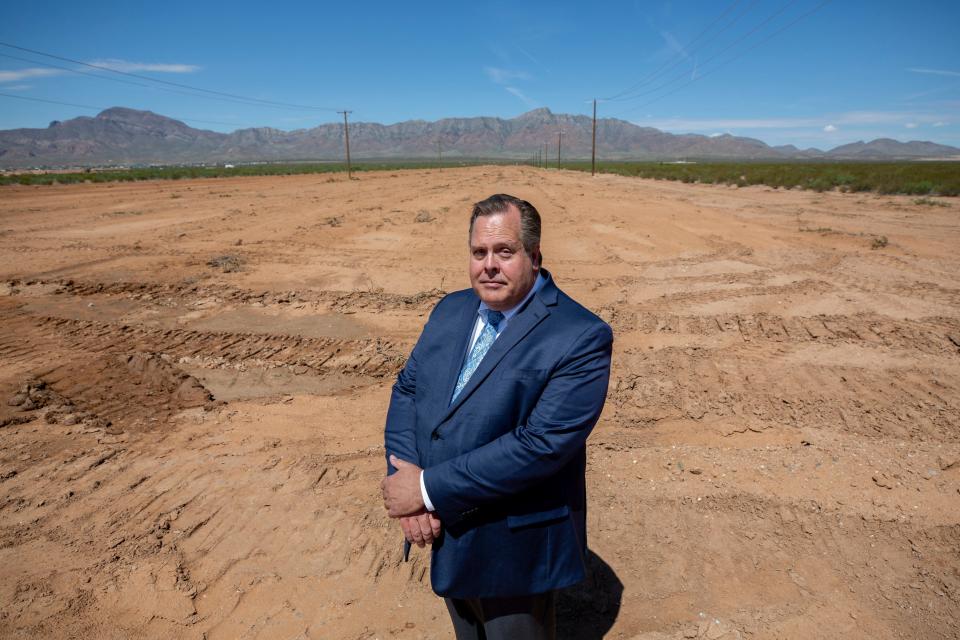
The reason: Meta plans to use an air-cooling system to cool the expensive electronic equipment in the proposed center, and only use water for cooling if the outside temperature hits 117 degrees or higher, he said.
Even if Meta doesn't use huge amounts of water, the El Paso data center will need lots of electricity — 200 megawatts for the project's first phase, El Paso Electric Chief Executive Officer Kelly Tomblin recently told the El Paso Times.
That's enough electricity to power about 100,000 El Paso homes.
"That's probably what they're going to be using most days, every day, 24/7," she said.
And it will need far more power, maybe as much as 600MW, if it builds a three-phase project as Meta officials have indicated may be done, Tomblin said.
Meta requires the power to be from solar, or other renewable sources, she said.
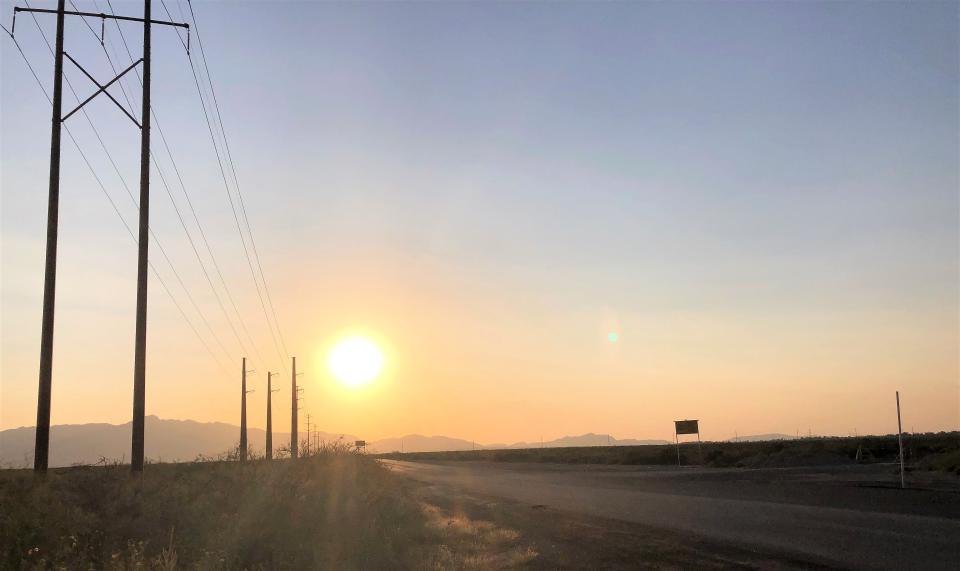
Meta not commenting about El Paso plans
Meta officials won't yet answer questions about the proposed data center, a Meta spokesperson said in an email.
Meta officials have yet to publicly announce the company will build a data center at the vacant El Paso site.
But a Meta-tied company late last year bought 1,039 acres of vacant Northeast El Paso land from the city for $8.5 million for the proposed project.
Also, El Paso City Council and El Paso County Commissioners Court in December approved providing millions of dollars in tax rebates for Meta if it builds the data center, and possibly a campus.
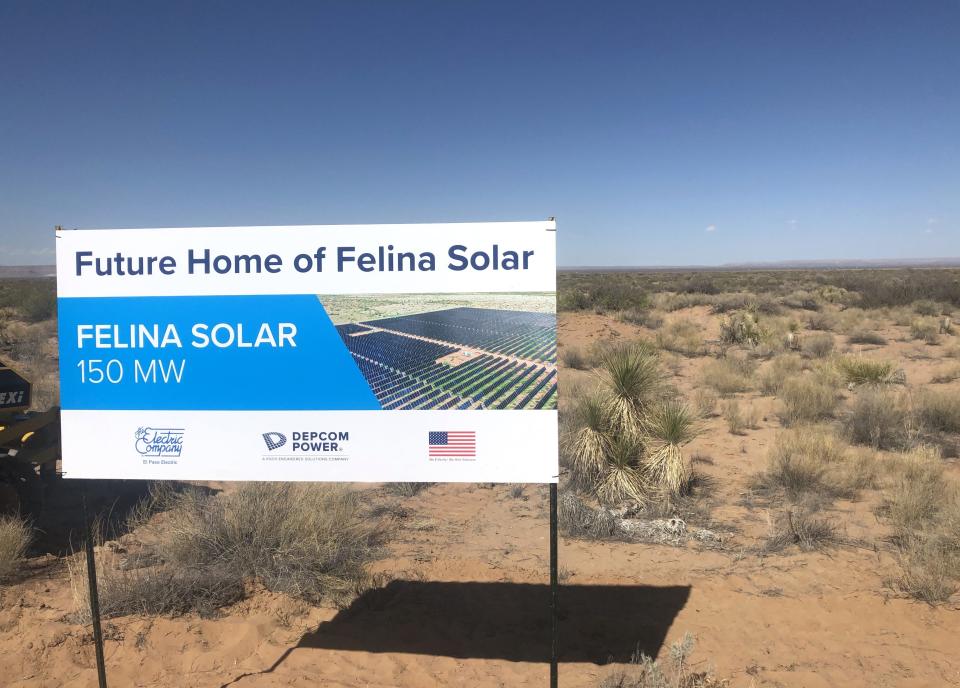
Meta eyes new solar plant for power
El Paso Electric and Meta officials are negotiating how, and at what price power can be supplied to the Meta project.
El Paso Electric is building a 150-megawatt solar plant off of San Felipe Road in far East El Paso County, and Meta wants power from that plant, Tomblin said.
EPE has reserved 50MW of the plant, scheduled to be completed in 2025, for its new Business Community Solar Program. That will allow some commercial customers to get a portion of their electricity through the solar plant, as a limited number of residential customers have been able to do for several years.
Meta doesn't need the 200MW until 2026, so EPE has time to meet the need, Tomblin said.
More: New Mexico's largest solar plant adds to EP Electric's growing solar portfolio
Economic Development Rate proposed for project
EPE officials want to supply power to Meta under a special Economic Development Rate, or EDR, that El Paso Electric instituted in 1993 but has never used. The negotiated rate must be approved by the Public Utility Commission of Texas, or PUCT.
EPE last year received approval from the commission to revise EDR requirements so it could be used for large data centers.
In documents filed with the PUCT, the EDR is portrayed as a discount rate that can't be funded through other customers' rates.
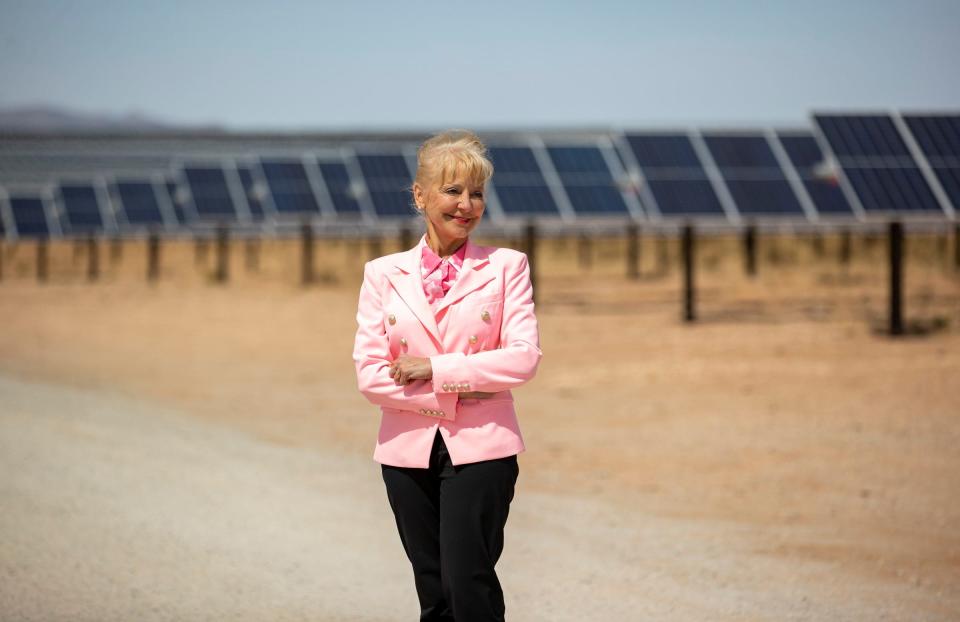
Meta also could choose to build its own power sources and pay EPE to interconnect to the local grid, Tomblin said.
El Paso Electric can meet the needs of big customers such as Meta with time, Tomblin said.
"I wouldn't sit around and worry about, are we going to run out of power? Because we're not. Because we can buy power, or we can build power," Tomblin said.
More: Power on: El Paso Electric's new, natural-gas fired $211 million generator celebrated
A Meta spokesperson referred the El Paso Times to the company's 2023 sustainability report for available information about Meta's water and power use.
That report and other information on Meta's corporate website state that Meta data centers are "supported by 100 percent renewable energy" by adding wind and solar projects to local grids.
"For many of our data centers, we partner with the local utility to create electric rates (or "green tariffs") that allow us to support our facilities with renewable energy," states another Meta report published in 2023.
Meta Phoenix-area campus gets solar power
For example, Meta will get 350 MW of solar power for its new $1 billion data center being built in Mesa, Arizona, a Phoenix suburb, from two solar plants on the Salt River Project electric utility grid, Salt River and Meta announced in December.
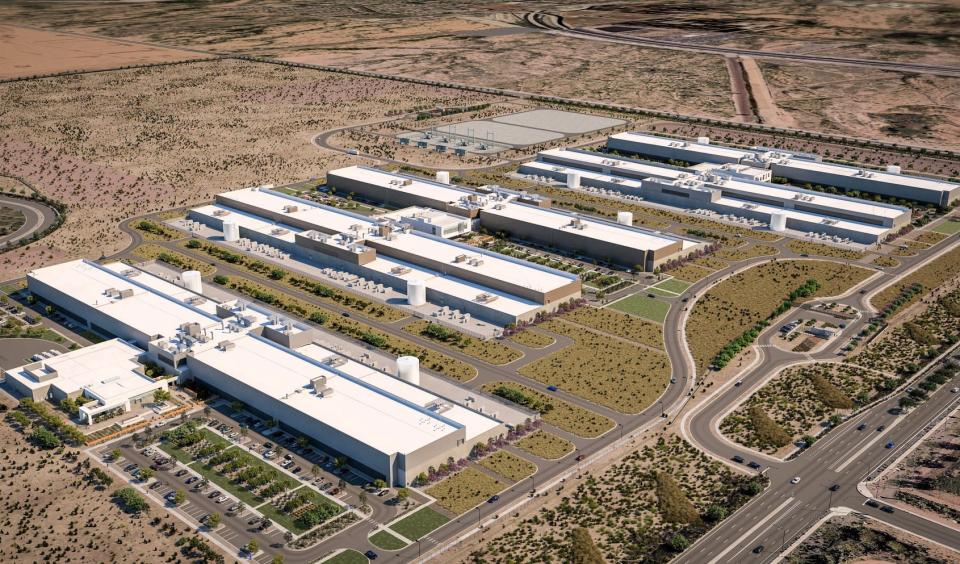
Meta has a contract with Orsted, a Denmark renewable energy developer, to receive most of the power produced from the 300 MW Eleven Mile solar farm built in the Phoenix area. It will be on the Salt River Project grid.
Plans initially called for an $800 million data center in Mesa, as Meta is initially proposing in El Paso. Meta last year expanded those plans ― something El Paso government leaders hope will occur here.
Evaporative cooling in Meta centers
Meta data centers' water use is mostly for evaporative cooling during summers and humidification during winters, according to its 2023 sustainability report. Evaporative cooling systems generally use lots of water.
In 2022, Meta tested increasing temperatures in the centers from 85 to 90 degrees, which cut water use by more than 50 percent in the summer without hurting operations, the report stated.
Meta canceled multiple data center projects in 2022 as part of a restructuring to go toward "next-generation design" for its data centers, the company has reported.
El Paso Water's Balliew said his understanding is Meta's planned cooling system for the El Paso facility hasn't previously been used by the company. It won't be an evaporative cooling system, he said.
"It is (cooling) equipment you can just buy off the shelf, so there is no danger of it not working," Balliew said.

Dallas center to use waterless cooling
An example of what's happening in the industry is Edged Energy's plans to use a waterless cooling system for a planned 24MW data center in the Dallas-Fort Worth area, the data center developer announced April 2.
The Dallas data center, and others being built elsewhere by Edged Energy, will use the new, waterless cooling system made by ThermalWorks. Both companies are subsidiaries of New York's Endeavor, a group of companies building commercial systems designed to save water and energy.
ThermalWorks saves more than 385 million gallons of water per year for every 100 MW data center, according to a company news release issued in October when it launched the new system.
Agreement allows big water use when needed
Under Meta's water-supply agreement with El Paso Water, it could use up to 100,000 gallons per day in the data center's first phase development, up to 750,000 gallons per day in phase two, and up to 1.5 million per day under the third phase.
To put that into perspective, the average water use for El Paso Water's 83 industrial customers is 12,078 gallons per day, and an average of 69 gallons per day for residential customers, El Paso Water officials reported.
However, two of El Paso Water's largest industrial customers, El Paso Electric, and Marathon Petroleum's El Paso oil refinery, use millions of gallons of water per day, El Paso Water data show.
More: EP Water $22M arroyo project to recharge aquifer, create desert oasis in Northeast El Paso
Meta's water needs not large, EP Water chief says
Balliew said he does not expect the Meta facility to reach the large usage numbers allowed under its water-supply agreement because of its proposed air-cooling system.
Most of the water used for the proposed data center would be for restrooms and landscaping, Balliew said.
So, why does Meta need an agreement allowing the data center to use large amounts of water daily?
"Because they're investing a huge amount of money into this project, so they want to have a guarantee that even when one of these high (temperature) events happen, they'll be able to run their operation 24/7," Balliew said.
"It's very unlikely that any of that water consumption (levels allowed under the water agreement) would take place," he said.
Vic Kolenc may be reached at 915-546-6421; vkolenc@elpasotimes.com; @vickolenc on Twitter, now known as X.
More: El Paso Water selling West Texas water ranch for $6M, Northeast land for TxDOT highway
This article originally appeared on El Paso Times: El Paso Meta data center won't guzzle water, but needs lots of power

